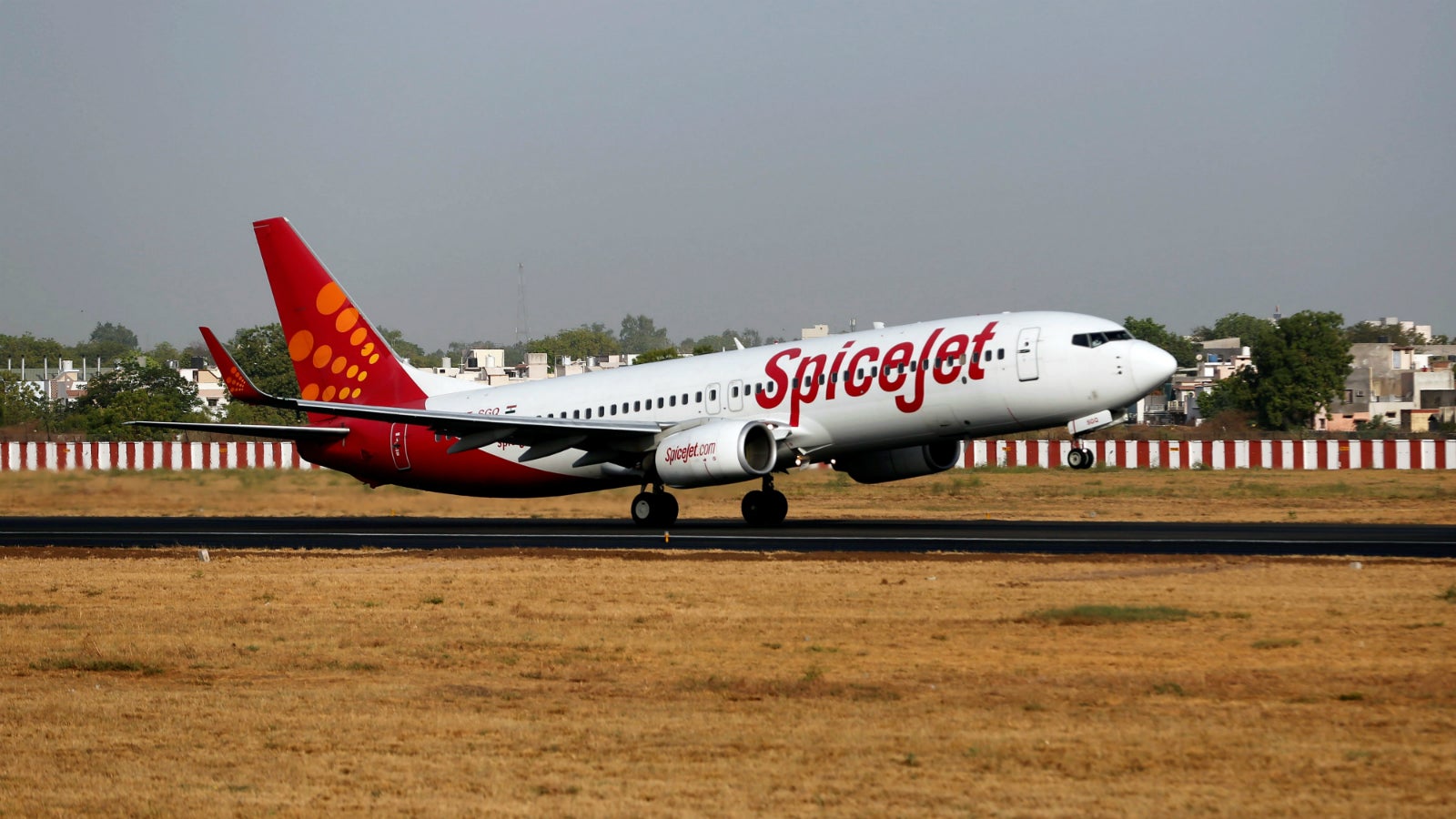The Indian airline that even Donald Trump is thanking
SpiceJet, India’s second-largest airline by market capitalisation, is soaking in all the adulation.


SpiceJet, India’s second-largest airline by market capitalisation, is soaking in all the adulation.
From a little over two-and-half-years ago, when it was down in the dumps, SpiceJet has emerged as the world’s best performing airline stock. Since December 2014, when it came close to being shut down, its stock has gained over 800%, Bloomberg reported on June 27. A day before, on Monday (June 26), the company came in for praise from none less than US president Donald Trump.
During his joint address to the media with Indian prime minister Narendra Modi, Trump thanked the airline for bringing jobs to the US.
“I was pleased to learn about an Indian airline’s recent order of 100 new American planes, one of the largest orders of its kind, which will support thousands and thousands of American jobs,” Trump said. SpiceJet has orders worth $26 billion in its pipeline. Of this, a little over $22 billion will go to the Chicago-based Boeing alone, creating 132,000 high-skilled, high-paid American jobs, the US department of commerce says.
Not very long ago, SpiceJet was in such bad shape that it could not even pay dues of $2.2 million on fuel. Several of its aircraft were grounded, too. It had been consistently making losses for three years and creditors were lining up to recover dues. For the 2014 financial year, the company’s net loss stood at Rs1,003 crore ($159 million) compared to a net loss of Rs191 crore ($30.5 million) in the previous year. By December 2014, as debt mounted, SpiceJet’s market capitalisation fell to Rs706 crore ($111 million), in comparison to Rs2,500 crore ($395 million) in January, a year ago.
The airline was widely expected to go down the same route as the beleaguered Kingfisher Airlines, which was forced to shut down.
Under such circumstances, SpiceJet’s owner, Chennai-based billionaire Kalanithi Maran, went scouting for a buyer. And Ajay Singh, considered close to Modi himself, was his man.
Since then, it has been a remarkable turnaround.
The world’s best performing airline stock
Singh, a co-founder, had left the airline earlier only to return in December 2014. He bought back the promoter stake in the company from Maran, reportedly, for Rs2. Singh, however, took on the airline’s liabilities of around Rs1,500 crore.
He then went on to restructure its operations, jettisoning non-profitable routes. Lower crude oil prices helped, too. The airline managed to renegotiate some of its engineering and maintenance contracts.
Since then, SpiceJet has posted nine straight quarters of profits. It placed orders for 92 aircraft from Boeing and 50 from Montreal-based Bombardier.
India’s fourth-most valuable airline by market capitalisation at Rs7,412 crore (as on June 27), SpiceJet now controls 13% of the Indian domestic market with about 50 planes. This year alone, its stock gained 124%, making it the world’s best performing airline share. In December 2014, when the airline was on the verge of shutting down, a share cost Rs18; now it is at Rs128.
While it lags IndiGo, India’s largest airline in terms of market capitalisation (at over Rs44,000 crore), it is better poised than the 24-year-old Jet Airways, the country’s second-largest by market share.
India’s air passenger traffic has been rapidly growing, and has doubled to nearly 100 million over the past six years, making the country the world’s third-largest airline market. Over the next few years, this number is only expected to rise, as only about 2% of India’s population uses airlines, providing a massive opportunity to expand the market.
Not surprisingly, Singh now says that India must get global commercial aircraft majors to set up plants in the country.
“To say that look, there is a huge market available for you in India, so why don’t you manufacture here? Perhaps, there can be some form of concessions given to people who might want to manufacture in India. Both tax concessions as well as creating a market opportunity for them,” Singh told the Press Trust of India.
The turnaround man is obviously raring to go.